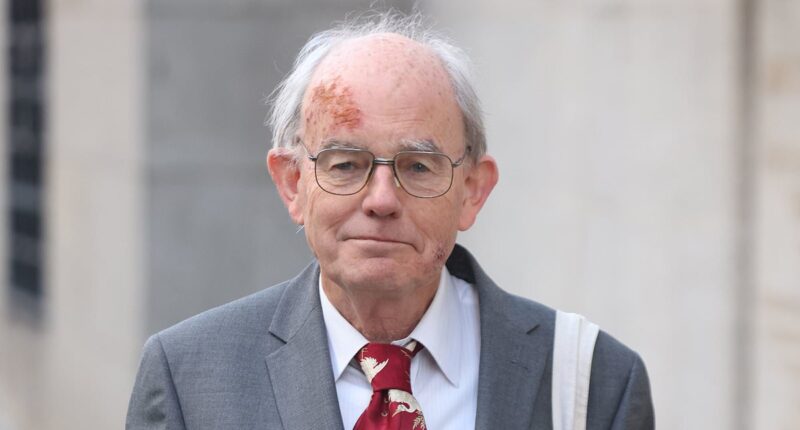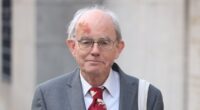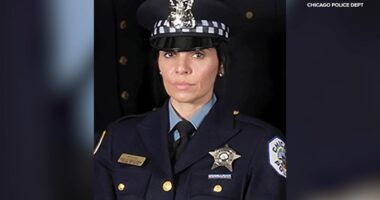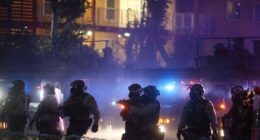The Troubles reached a new level of horror on November 21, 1974, when the Irish Republican Army (IRA) carried out a devastating attack in Birmingham. Two city center pubs were bombed in a shocking act of terror that stunned the entire nation.
The first explosion occurred at The Mulberry Bush just after 8pm on a bustling Thursday evening. Moments later, another bomb went off at The Tavern bar, causing chaos and destruction.
This brutal attack resulted in the loss of 21 innocent lives and left 220 others injured. It marked a dark and destructive chapter in the IRA’s bombing campaign in mainland Britain, and the incident still stands as the largest unsolved mass murder in the country’s history.
In the chaotic aftermath though, this pain and anguish was compounded by what has since been described as the Britain’s ‘gravest miscarriage of justice’.
Six innocent men, all of whom were Irish, were brutally interrogated by an infamous sect of West Midlands Police, and ultimately coerced into signing confessions admitting to their involvement in the bombings.
Sentenced to life behind bars and seeing their appeals quashed, hope was seemingly lost for the men dubbed by the day’s media as ‘the Birmingham Six’.
That was until a budding investigative reporter by the name of Chris Mullin was tipped off that all may not be as it seemed.
A near-decade long crusade began, which resulted in the then-future MP cracking the case wide open by unearthing the actual quartet of bombers.
Needing to grant the culprits’ anonymity though to gain their cooperation and help free the innocent men, Mullin refused to reveal the identities of those who had committed the atrocity, standing by his word and the cardinal journalistic rule of source protection.

A map of Birmingham City Centre detailing the proximity in location between the two bomb sites and where the six innocent men were arrested on the evening of November 21, 1974

The Tavern bar in Birmingham City Centre was the second of two targeted by the IRA on November 21, 1974

The damage to both venues was catastrophic, with 21 people killed and 220 injured by IRA-planted bombs

A West Midlands Police Officer surveys the damage of the Birmingham bomb blasts

A reportedly botched tip-off call was to blame for civilians still being inside the bars when the bombs went off

The remnants of The Mulberry Bush pub in Birmingham’s Rotunda following the detonation of the IRA’ s first bomb

The devastation of both bombs was catastrophic, with the incident remaining Britain’s largest unsolved mass murder to this day

A staggering 220 people were injured by the two bombings on what was a busy Thursday evening in Birmingham city centre
‘West Midlands Police had no interest in finding out who’d really done it’, Chris Mullin recalled to the MailOnline.
Detailing how confessions were coercively extracted from four of the six innocent Irishmen by the notorious West Midlands Serious Crime Squad, Mullin spoke of the beatings the men received at the hands of authorities, which can be verified from the facial cuts and bruises in their official Police mugshots.
‘This was their modus operandi, they were basically an organised criminal enterprise in their own right’, the former Labour MP for Sunderland South stated.
‘The West Midlands Serious Crime Squad were a heavy bunch who’d use whatever level of intimidation and violence necessary to wangle confessions. I’ve heard stories of how they would go as far as holding plastic bags over interviewee’s heads. But somehow judges and juries bought this nonsense for years’.
It was through a combination of these erroneous confessions alongside fabricated evidence that led to Patrick Joseph Hill, Hugh Callaghan, Gerard Hunter, Richard McIlkenny, John Walker and William Power being sentenced to life behind bars in 1975.
Despite holding reservations over the convictions at the time thanks to conversations with the Guardian’s Peter Chippindale, Mullin was in no position as a freelance journalist to take on the might of the British judiciary system.
Always keeping a close eye on the appeals of the six over the following number of years, it was not until almost a decade later when Mullin was in a situation to pursue the case with vigour.
Convincing Granada television of its merits, Mullin aided in the commissioning and production of an investigative documentary into the evidence surrounding the six men’s convictions.
The three-part series which was released in 1985 blew wide open holes through the case, eviscerating forensic evidence and highlighting the troubling nature in which police evidence was obtained, alongside a case-shattering interview with one of the actual culprits behind the bombings.
A year later in 1986, what was seemingly the final nail in the prosecution’s case came when Mullin released his book ‘Error of Judgment: The Truth About the Birmingham Pub Bombings’.
In the year between the documentary and the release of his book, Mullin had took it upon himself to travel to Ireland and identify the four actual bombers.

The mugshots of the Birmingham Six – from left top: Patrick Hill, Hugh Callaghan, John Walker, Richard McIlkenny, Gerard Hunter and William Power

West Midlands Police mugshot of Patrick Hill

West Midlands Police mugshot of Hugh O’Callaghan

West Midlands Police mugshot of John Walker

West Midlands Police mugshot of Richard McIlkenny

West Midlands Police mugshot of Robert Hunter

West Midlands Police mugshot of William Power
‘I walked down some very dark alleyways in Dublin and Belfast on those visits,’ Mullin remembered, ‘but uncovering the identities of the actual culprits was the only way to exonerate the innocent six’.
Describing himself as ‘very English’, one can imagine the difficulties Mullin encountered on his visits to various Republican strongholds asking lots of uncomfortable questions during the acme of the Troubles.
However, already possessing the name of one of the actual bomb makers, Michael Murray, from his time working with Granada television, Mullin’s investigation led to his confirming of the involvement of three further men, James Francis Gavin, Michael Christopher Hayes and a third unnamed man.
Having offered all four anonymity, Mullin can now openly discuss both Murray and Gavin as they are dead. Michael Christopher Hayes, despite being interviewed by Mullin and admitting his membership of the IRA, never confided in Mullin over the bombings but has since spoken of his ‘collective responsibility’ in other interviews and thus waived his right to anonymity. The final member of the four-man bomb squad remains unnamed as he is still alive, according to Mullin.
Detailing his findings in ‘Error of Judgment: The Truth About the Birmingham Pub Bombings’, the Crown Prosecution Service was left with no other option but to reopen the Birmingham bombings case.
A first appeal in 1988 somehow proved unsuccessful, but ultimately justice prevailed in 1991 with all six men being granted their freedom.
The case against the ‘Birmingham Six’ has since been labelled one of the ‘gravest miscarriages of justice’ in British legal history, with Mullin’s work heralded as one of the finest examples of investigative reporting in modern times.
Already an MP for Sunderland South by the release of the ‘Birmingham Six’ in 1991, Mullin spoke to the ‘great advantage’ that being a member of parliament was in helping quash the convictions.
‘It was a tremendous opportunity to confront those directly responsible- the police and the criminal justice system- which is exactly what I did.
‘Some Tories even ended up taking my side, with Sir John Farr and I forming what would’ve been perceived as an unlikely duo in championing the cause of these innocent men’.

Chris Mullin (centre) with the ‘Birmingham Six’ upon their release from prison 16 years after their wrongful conviction

Patrick Hill (centre) speaks to crowds gathered outside the Old Bailey following the release of the ‘Birmingham Six’ in 1991

The ‘Birmingham Six’ celebrate before the media following the quashing of their convictions

The ‘Birmingham Six’ celebrate with one another with a rapturous onlooking crowd outside of the Old Bailey

‘Error of Judgement: The Birmingham Bombings and the Scandal that Shook Britain’, the cover of Chris Mullin’s groundbreaking expose into the wrongful convictions of the ‘Birmingham Six’

Michael Murray (pictured) was the first name identified by Chris Mullin as having been one of the four perpetrators behind the 1974 Birmingham bombings

James Francis Gavin (pictured) was the second person identified by Mullin as having played a role in the blasts

Michael Christopher Hayes originally denied his involvement in the bombings to Mullin, but has since revealed in subsequent interviews his feelings of ‘collective responsibility’
At a time when anti-Irish sentiment was rife within both the British judiciary system and press, Mullin highlighted how the story of the ‘Birmingham Six’ was not an isolated tale.
The M62 and Woolwich bombings occurred in the very same year, with a total of 18 people jailed for their supposed involvement. All 18 have since been exonerated and cleared of any wrongdoing.
As one might expect though, Mullin’s exposing of the British policing establishment was not met with which much fanfare, with The Sun newspaper taking particular exception to his reporting.
‘I received an awful lot of abuse and still do to this day,’ recounted Mullin.
‘The Sun have continually been the most critical. I remember numerous articles such as ‘Is there a more odious MP than Chris Mullins’ and ’20 things you didn’t know about crackpot Chris’- most of them were news to me too!
‘My favourite attack on my character was a front page which read ‘Loony MP backs bomb gang’. It still hangs in my office to this day’, the former MP chuckled.
Mullin’s refusal to reveal the identities of the real bombers not only drew the ire of Britain’s right-leaning media, but also from the family members of the bombing’s victims.
Branded a ‘disgrace’ by Julie Hambleton of the Justice for the 21 campaign group, Mullin says he sympathises with and even accepts their anger.
However, the former MP remains content with his choice, believing it was unequivocally in the public interest to do what he did.
‘I was under no illusions. I knew I could not both free the innocent men and help imprison the actual culprits simultaneously. In order to prove the innocence of the ‘Birmingham Six’ I had no choice but to grant the real bombers anonymity so they would confide in me.
‘It was overwhelmingly in the public interest and I believe that if I had not have done it, that there is a very real chance that those innocent men would still be in prison to this day’, Mullin explained.

A map detailing a number of locations which were targeted during IRA’s 1974 bombing campaign on mainland Britain

Chris Mullin hoists aloft the aforementioned Sun newspaper front page which reads ‘Loony MP backs bomb gang’

Chris Mullin (left) served as an MP for Sunderland South for over two decades following his career in investigative journalism

Mullin used his time in the House of Commons to further pressure for the release of the innocent ‘Birmingham Six’

November 21, 2024, marked 50 years to the day since the bombings and arrests of the ‘Birmingham Six’ occurred
Three decades on from the exoneration of the six men, the case once again made international headlines as Mullin was dragged before the Old Bailey in a bid by West Midlands Police to have him reveal the identity of the unnamed bomber.
For the reasons previously stated, the former MP had for years refused to cooperate on multiple occasions but eventually found himself before a judge in 2022 after authorities cited the 2000 Terrorism Act as just cause.
The case against Mullin was viewed as a watershed moment for journalism. Should the court side with prosecution and force him to reveal his source, it would remove any promise of anonymity which journalists could offer to whistleblowers.
‘Any and all forms of investigative journalism would have been at risk had the court ruled against me. Sources are fundamental to maintaining democracy’, Mullen argued.
‘You couldn’t expect people to talk to you about controversial matters of which they might have an inside account if you couldn’t guarantee to preserve their anonymity. It doesn’t just apply to a case like mine, it could apply to any form of whistleblower or someone within the NHS or even the police itself’.
Going on to make the case that it was a gross misuse of the Terrorism Act, Mullin pointed out the irony that any conviction he may have received would have brought.
‘I could have eventually been jailed for contempt of court but I’d have appealed all the way to Europe’, Mullin remarked.
‘They then would have been faced with irony that only person held to account for everything would have been the guy who blew the whistle which would’ve been tough to stomach’.

Chris Mullin victoriously stands outside the Old Bailey after the court ruled in his favour over the anonymity of his sources

In what was a watershed moment for journalism, the future anonymity of sources for investigative reporting in the UK hinged on the outcome of Mullin’s case

Mullin’s legal costs were covered by the National Union of Journalists, with its General Secretary Michelle Stainstreet pictured with Mullin here outside the Old Bailey

Mullin remains adamant to this day that his decision to conceal the identities of the true bombers was overwhelmingly in the public interest
To this day, Mullin still shares occasional contact with the men he helped free.
He also remains unwaveringly self-effacing when it’s put to him that his reporting is considered by many to be the exemplar of investigative journalism, something he says he ‘takes no notice of’.
Now, fifty years on from the Birmingham bombings and 14 since his retirement from the House of Commons, Mullin spends his days in the reclusiveness of his native Northumberland.
Asked if all the court cases and abuse would make him think twice as to take on the same crusade again, the 76-year-old, without a moment’s hesitation, replied: ‘Not for a second’.
‘Six innocent men were freed and the names of three of the four perpetrators are known because of that reporting. There is no dilemma there’, he stated assuredly.
The legacy of the ‘Birmingham Six’ case lives on far past the lives of the freed men though, with its principal consequence being helping to shape the contemporary British legal system.
The very next day after the conclusion of the successful appeal of the ‘Birmingham Six’, the introduction of the criminal cases review commission was recommended.
This commission has now quashed over 500 wrongful convictions since its establishment, with disclosure rules having also been drastically reformed as a direct result.
Grateful for these advancements, Mullin makes a final observation: ‘Something good ultimately came from what was such a dark day. We still witness some shocking miscarriages of justice but the system as a whole has improved remarkably as a result of the appeals of the ‘Birmingham Six”.

















